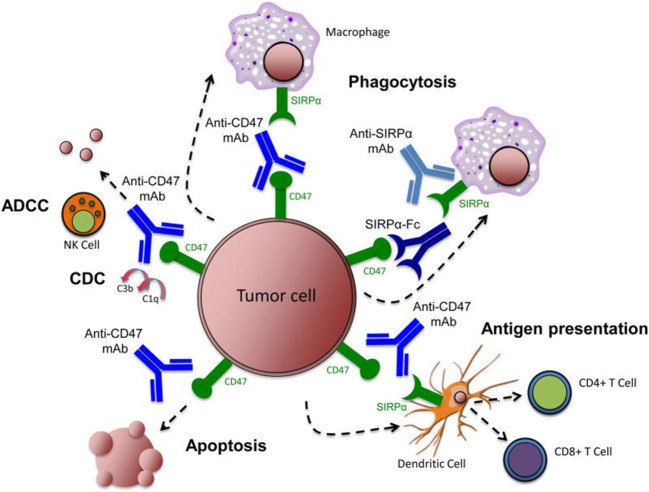Figure 2.
Targeting the CD47-SIRPα pathway in cancer. Therapeutic targeting of the CD47-SIRPα pathway can cause elimination of cancer cells through multiple mechanisms. First, inhibition of the CD47-SIRPα interaction using an anti-CD47 antibody, an anti-SIRPα antibody, or a recombinant SIRPα protein, leads to phagocytic uptake of tumor cells by macrophages. Second, anti-CD47 antibodies enable phagocytic uptake of tumor cells by dendritic cells and subsequent antigen presentation to CD4+ and CD8+ T-cells, thereby stimulating an anti-tumor adaptive immune response. Third, anti-CD47 antibodies eliminate tumor cells through natural killer cell-mediated antibody-dependent cytotoxicity and complement dependent cytotoxicity. Fourth, anti-CD47 antibodies stimulate apoptosis of tumor cells through a caspase-independent mechanism. Image reproduced with permission from Chao et al. (58). ADCC, antibody-dependent cell-mediated cytotoxicity; CDC, complement dependent cytotoxicity; mAb, monoclonal antibody; NK, natural killer; SIRPα, signal-regulatory protein α.

